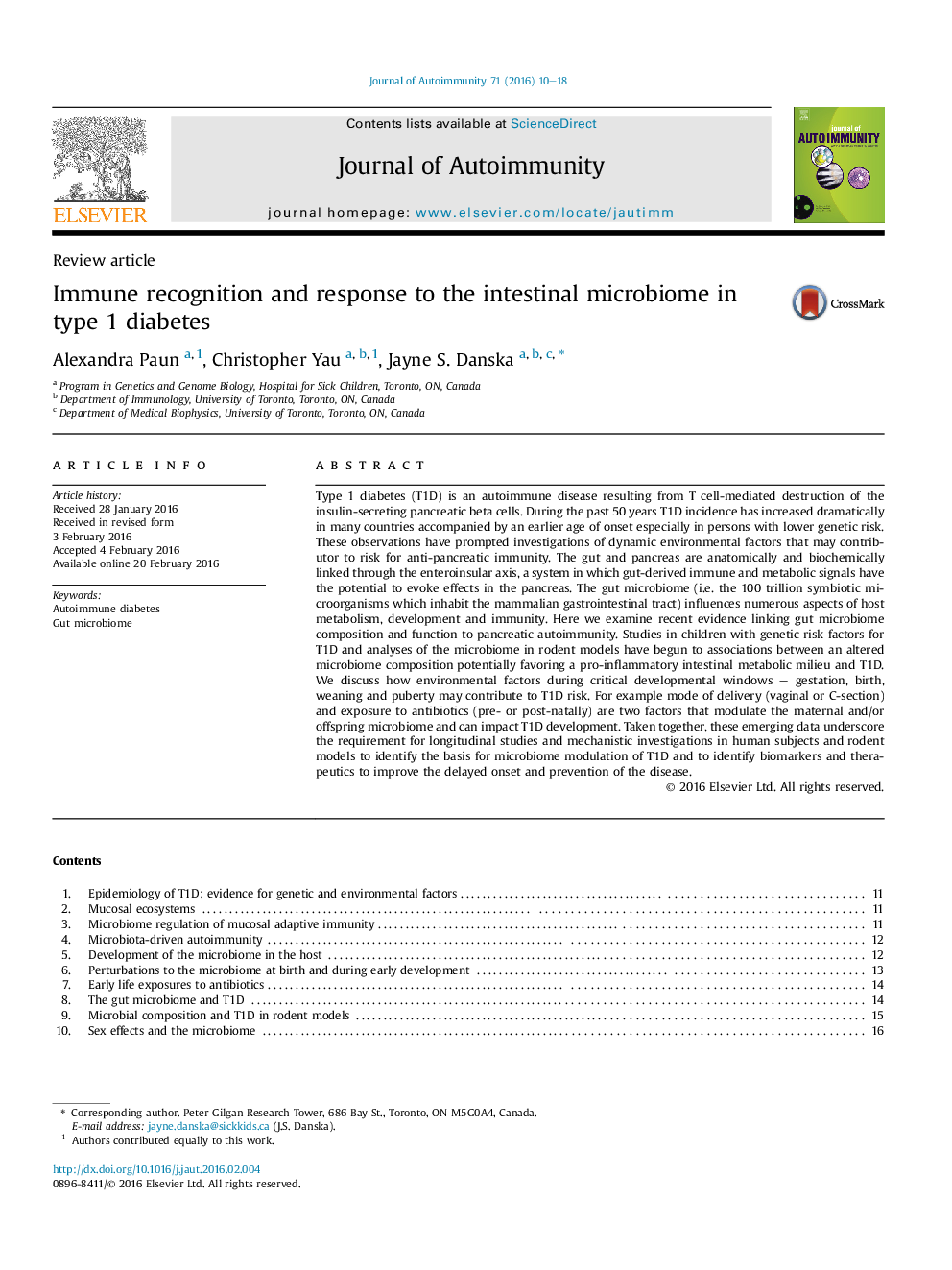| کد مقاله | کد نشریه | سال انتشار | مقاله انگلیسی | نسخه تمام متن |
|---|---|---|---|---|
| 3367651 | 1592278 | 2016 | 9 صفحه PDF | دانلود رایگان |
• The increased T1D incidence suggests a role for environmental factors in disease development.
• Studies in humans and animal models indicate that a disrupted gut microbiome contributes to T1D pathogenesis.
• Perturbations of the normal gut microbiome during gestation, early life and puberty can promote the development of T1D.
• Mechanistic studies are required to explore the microbiome-autoimmunity axis and identify novel therapeutics for T1D.
Type 1 diabetes (T1D) is an autoimmune disease resulting from T cell-mediated destruction of the insulin-secreting pancreatic beta cells. During the past 50 years T1D incidence has increased dramatically in many countries accompanied by an earlier age of onset especially in persons with lower genetic risk. These observations have prompted investigations of dynamic environmental factors that may contributor to risk for anti-pancreatic immunity. The gut and pancreas are anatomically and biochemically linked through the enteroinsular axis, a system in which gut-derived immune and metabolic signals have the potential to evoke effects in the pancreas. The gut microbiome (i.e. the 100 trillion symbiotic microorganisms which inhabit the mammalian gastrointestinal tract) influences numerous aspects of host metabolism, development and immunity. Here we examine recent evidence linking gut microbiome composition and function to pancreatic autoimmunity. Studies in children with genetic risk factors for T1D and analyses of the microbiome in rodent models have begun to associations between an altered microbiome composition potentially favoring a pro-inflammatory intestinal metabolic milieu and T1D. We discuss how environmental factors during critical developmental windows – gestation, birth, weaning and puberty may contribute to T1D risk. For example mode of delivery (vaginal or C-section) and exposure to antibiotics (pre- or post-natally) are two factors that modulate the maternal and/or offspring microbiome and can impact T1D development. Taken together, these emerging data underscore the requirement for longitudinal studies and mechanistic investigations in human subjects and rodent models to identify the basis for microbiome modulation of T1D and to identify biomarkers and therapeutics to improve the delayed onset and prevention of the disease.
Journal: Journal of Autoimmunity - Volume 71, July 2016, Pages 10–18
